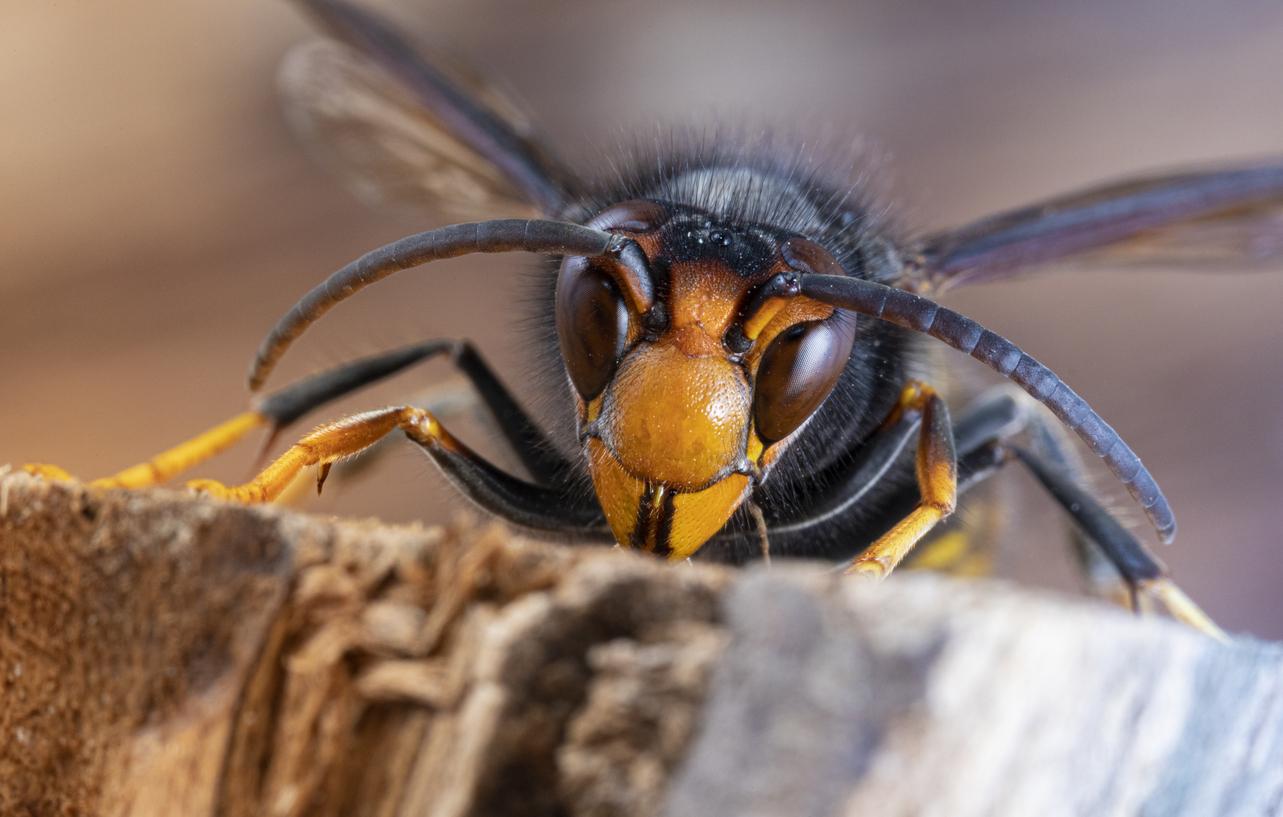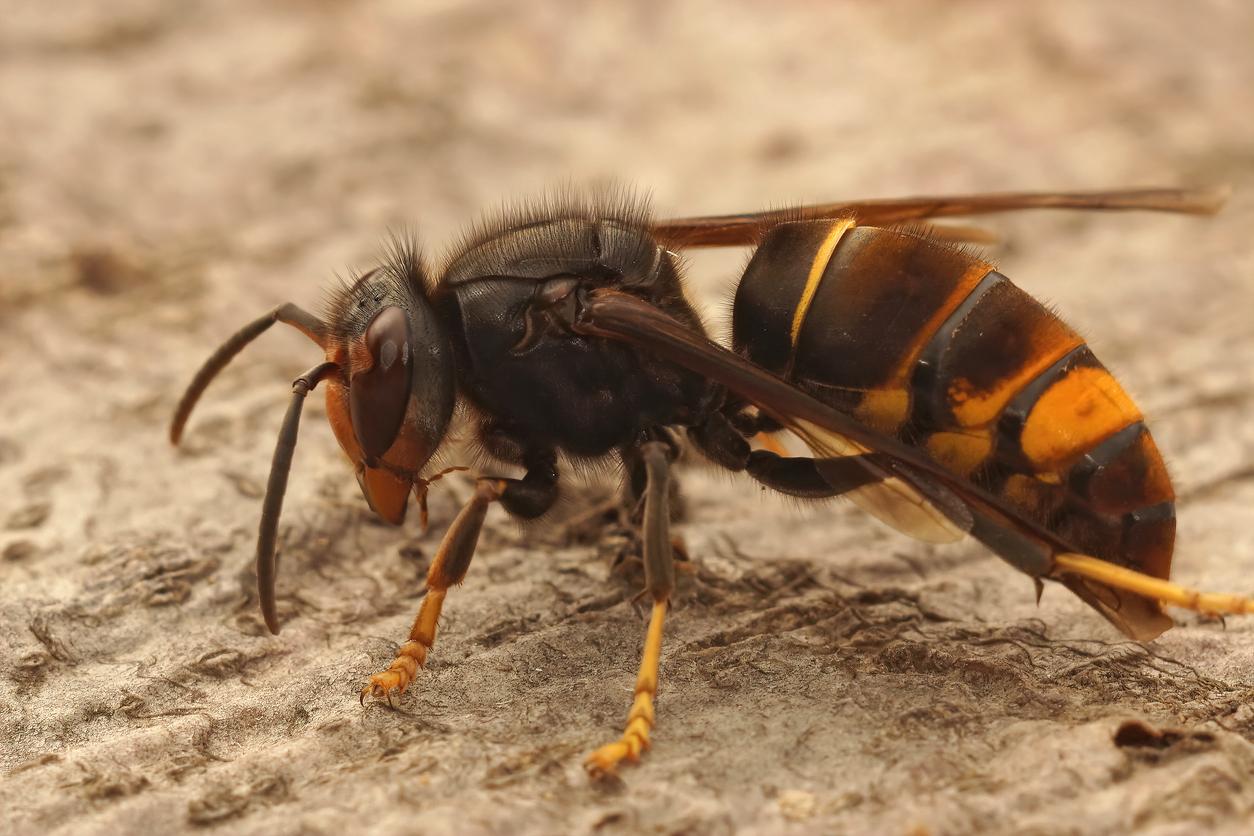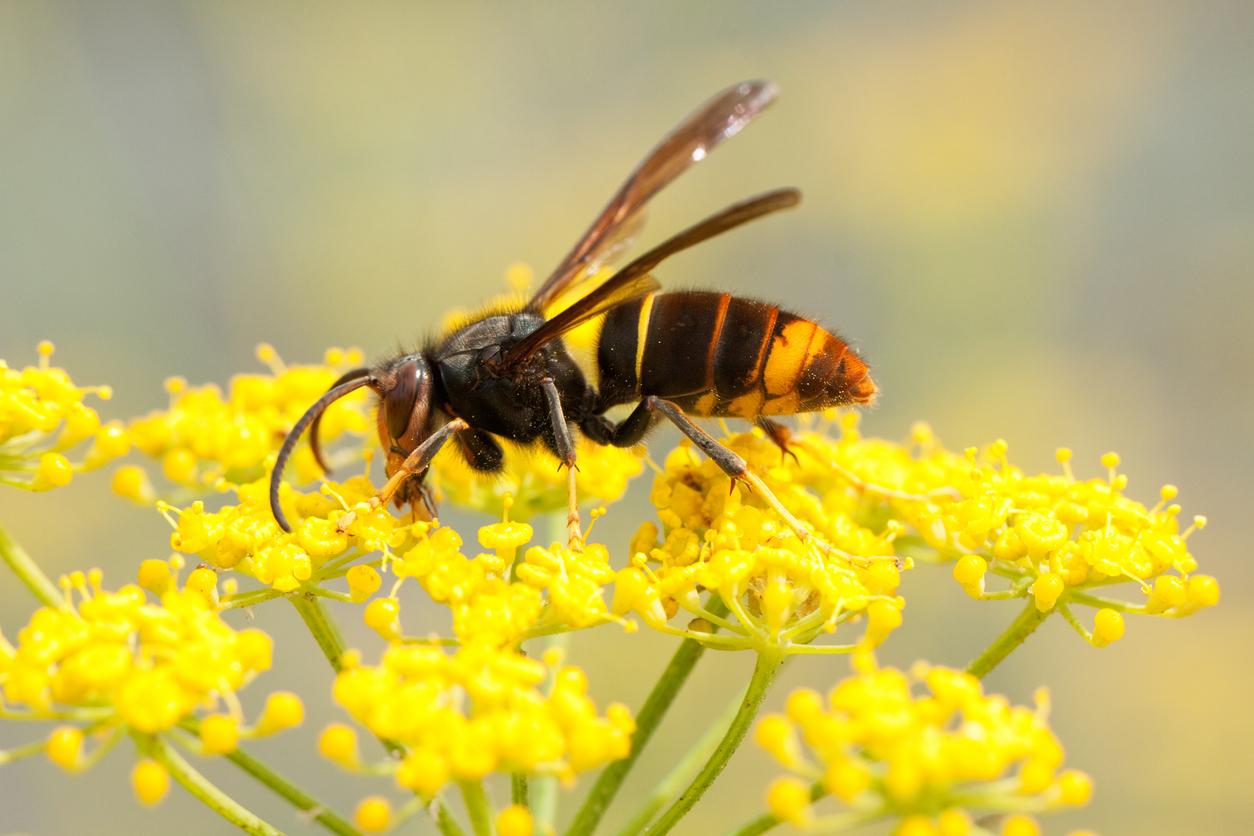Asian Hornets: Identification, Threats and What to Do if You Find One
People living in Kent may already be aware of the threat that Asian hornets pose, with leaflets circulated in spring after the invasive insect was spotted in the region.
In 2023, the UK saw record numbers of Asian hornets (Vespa velutina), which are believed to have spread to our shores after arriving in France in around 2004. It’s suspected they made their way into Europe via pottery sent from Asia, but each year there have been increased sightings in the UK.
This is concerning for a number of reasons, which is why, this month at Pest Defence, we’re going to tackle what Asian hornets look like, why they pose a threat and what to do if you find one.

What does an Asian hornet look like?
Sometimes it’s hard to know which species of insect you’re looking at when they buzz around you, so here are some handy identification tips for spotting an Asian hornet:
Abdomen – A crucial giveaway is that an Asian hornet’s abdomen is almost all black, apart from the fourth segment which is yellow. Native hornets have a lot more yellow on the upper portion of their abdomens.
Legs – Yellow tips on the legs are another sign that you’re looking at an Asian hornet, since the legs of our native species are all dark.
Black or brown thorax – The back of an Asian hornet is brown or black; again, this is different to the native hornet, which has a more orangey colour to the thorax.
Size – This may be hard to detect when they’re in flight and without a comparison on hand, but the Asian hornet is slightly smaller than the European hornet.
Are Asian hornets aggressive?

Asian hornets will become more aggressive if they feel their nest is under threat, which is why it’s advised that you don’t attempt to remove or destroy the nest yourself. We’ll cover what you should do if you spot an Asian hornet later in this piece.
The Asian hornet species can sting, but this isn’t any more dangerous to us humans than the native hornet. An Asian hornet sting only becomes a real issue if the person has an allergic reaction, as it can result in anaphylaxis.
The Asian hornet has been described as an aggressive predator of other insects, which brings us to our next section on why they pose such a threat.
Why are Asian hornets a threat?
Asian hornets pose a threat in several ways in the UK. The first and biggest is their impact on natural pollinators like honey bees and wasps, which they prey on aggressively. This invasive species can take out whole colonies of bees quite quickly, resulting in a devastating impact on the ecosystem and agriculture, which is of course reliant on pollination.
It’s for this reason that Defra (Department for Environment, Food & Rural Affairs) has issued an alert on Asian hornets.
A loss of honey bees also directly impacts the production of honey, so the effort to tackle the issue of Asian hornets can also be a costly one. The economic burden on agricultural industries is therefore not a sustainable one, hence the efforts to educate people on the topic.
Should you report Asian hornets in the UK?

Yes. In fact, it’s extremely important for people to be vigilant and report sightings so that efforts can be made to eradicate the invasive species. Report Asian hornet sightings via Defra’s online form, the Android or iPhone app, or by emailing alertnonnative@ceh.ac.uk.
Remember! You mustn’t attempt to remove Asian hornets yourself if you find them or their nest, as they can become very aggressive. Leave that stage of the process to the professionals — your diligence in spotting and reporting them is more than enough to help the cause.
With over 30 years of experience in dealing with insect pests, at Pest Defence, you can count on us to assist if you require safe hornet nest removal in London and Essex. We can also advise you whether the nest belongs to the Asian hornet species if you’re concerned that they’ve made one on your property. Contact us today for expert pest control services from our qualified and accredited teams.
